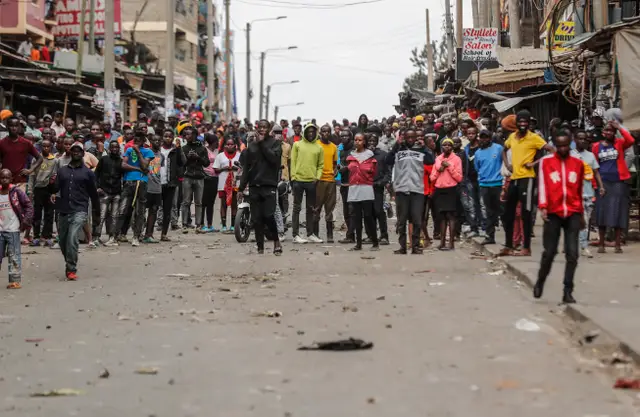In what should have been a flourishing season for Kenya’s tourism industry, a series of protests have thrown the nation into turmoil, jeopardising its growing economic recovery. The demonstrations, primarily driven by soaring living costs and discontent over the previous year’s election results, have unfortunately coincided with the peak of the tourism season. The ramifications have been severe, leaving hotels, lodges, restaurants, and tour organisers in dire straits. Kenya’s third-largest source of foreign exchange, employing around 3.1 million people directly, is now facing an uncertain future.
As the East African gem struggles to bounce back from the economic challenges caused by the global pandemic, the timing of these protests couldn’t have been worse. Both local and international tourists, seeking respite in Kenya’s breathtaking landscapes and diverse wildlife, have been discouraged from visiting the country due to the ongoing civil unrest.
The UN Human Rights Office reported a staggering death toll of almost two dozen people in connection with the protests within just one week. The violence and unrest have dealt a devastating blow to the nation’s reputation as a safe and welcoming travel destination, making headlines worldwide and triggering widespread concern among potential tourists.
The protests have had far-reaching consequences for businesses operating in the tourism sector. Many establishments have been forcibly shut down and looted, resulting in significant financial losses. With public infrastructure also being vandalised, the country’s ability to cater to tourists and ensure their safety has been severely compromised.
In addition to the immediate impact on revenue, the long-term consequences of the unrest are equally concerning. Investors and stakeholders in the tourism industry may become hesitant to inject capital into a country plagued by political instability, further hindering the industry’s chances of a speedy recovery.
The Kenyan government is facing mounting pressure to address the grievances of the protesters and restore peace in the nation. Authorities have deployed security forces to quell the violence, but clashes between demonstrators and law enforcement have persisted. The situation remains tense, with no immediate resolution in sight.
Amid the chaos, some members of civil society and community leaders have stepped forward to facilitate communication between the protesters and the government. These efforts offer a glimmer of hope for a potential resolution and pave the way for a peaceful dialogue.
In response to the crisis, various international organisations and neighbouring countries have offered support and assistance. The African Union and the United Nations have expressed their willingness to mediate and help stabilise the situation, hoping to avoid further escalation of violence.
Kenya’s tourism industry has shown remarkable resilience in the face of past challenges, such as natural disasters and economic downturns. However, the current crisis presents a unique set of obstacles that demand urgent attention and cooperative action.
For the sake of the millions employed in the industry and the nation’s economic well-being, it is crucial for all stakeholders to come together and find a peaceful resolution. The road to recovery may be long and arduous, but with determination, dialogue, and international support, Kenya can emerge from this turbulent chapter stronger and more united than ever.

